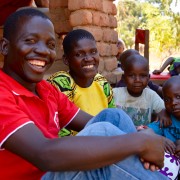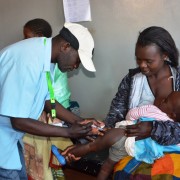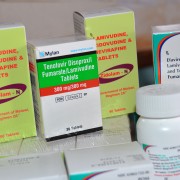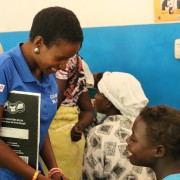Speeches Shim

USAID collaborates with development partners and civil society to address rapid population growth, which remains a significant development challenge in Malawi. In fact, the population is expected to nearly triple by 2040 which will further stress the country’s overwhelming issue of food insecurity.

Malawi faces a range of challenges to sustainably finance and efficiently manage the delivery of high-quality health services. There is a severe shortage of adequately trained health personnel across all professional cadres, and it is difficult to train, retain, supervise, and manage existing workers within the health system. There are also critical gaps in supply chain management, information systems, and infrastructure.

USAID Malawi works with the Government of Malawi (GoM) to address health-related challenges such as HIV/ AIDS, malaria, and undernourishment. While the country now has access to some of the commodities that can help fight several of these national challenges, in many cases, the country struggles to get these resources to the people who need them.

Over the last two decades, Malawi has made gains in most health indicators and it is one of only a few countries to have achieved Millennium Development Goal 4 for child survival ahead of the target year.

Recent national and regional literacy tests have shown that Malawian students rank among the lowest in the sub-Saharan African region. In fact, in Malawi, 83% of Standard 1 students cannot read a single syllable and 92% cannot read a single word. Additionally, Standard 3 students on average can only read 11 words per minute and 67% cannot identify the first sound, or phoneme, in a word. This poses a major development challenge.


Comment
Make a general inquiry or suggest an improvement.